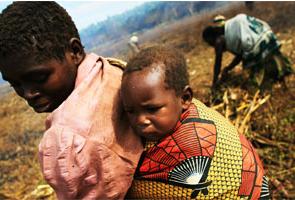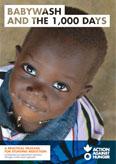Malawi
Join Us
Humanitarian Context
Mwanza District experienced the influx of Asylum seekers from Mozambique since 5th July 2015 up to date. The Asylum seekers fleeing from Mozambique are settled along the border line particularly in Mwanza District in 5 known areas which are located along the national boundaries of Mozambique and Malawi in the western parts of the District including Kapise. The influx continued gradually since it started and the arrivals reached an average of 250 - 300 refugees arrive at Kapise village on a daily basis.
In general terms, arrivals have been accommodated on a highly transitory basis at the Kapise holding camp and political considerations and lack of funding have hampered to delivery of essential services which meet minimum standards. In the transfer process to Luwani (and given the sites run down nature) men, women and children will once more experience dislocation, heightened protection risks, limited access to viable livelihoods options and dependence on aid to support daily food security.
Amongst the most urgent needs is shelter for individual families, water supply, water storage containers, and basic hygiene facilities. The danger of disease outbreak such as cholera and malaria was imminent due to poor sanitation and stagnant water/ poor drainage in the camps, mainly at Kapise Camp. An OCH campaign has been conducted in Kapise and the setup and the availability of wash facilities, hygienic habits and setup of Luwani reduces considerably the risk.
In Kapise camp the most urgent needs is shelter for individual families, water supply, water storage containers, water treatment for drinking water, pit latrines and basic hygiene facilities. The danger of disease outbreak such as malaria is imminent due to poor sanitation and stagnant water/ poor drainage in the camps.
As to date, basic needs in shelter water supply and sanitation facilities have been covered at Luwani camp, the response needs to be transitioned to post-emergency:
- Food: Protection monitoring indicate that over 90 per cent of the refugee population falls well below the poverty line Food assistance is critical to prevent malnutrition and starvation, as all the refugees are entirely reliant on external food distribution.
- Wash: In order to ensure Water supply to all locations in Luwani cam there is need to motorise two boreholes and shallow well from the river. Family latrines on the individual plots will need to replace the temporary communal latrines as soon as possible to make up for the insufficient number of communal latrines.
- Health and Nutrition: The clinic at Luwani, established from the previous refugee camp, is still structurally sound but has been operating with shortages of medical/clinical supplies, and a lack of water and power. The Ministry of Health requires support to expand its services in Luwani. Partners are providing additional medical staff capacity, and existing staff require training and continuous support in stock and waste management. Health promotion and HIV/AIDS prevention campaigns are necessary to address the high malaria prevalence, vaccination needs, misconceptions about health (cholera), and to improve the health standard of the population.
Malawi
managed by
ACF SPAIN
launch date
2016
areas of intervention
Luwani Camp
14.863
beneficiaries
42.532
water, sanitation and hygiene
17.132
food security & livelihoods
12
workers
7
expatriates
5
national staff
42.532
water, sanitation and hygiene
17.132
food security & livelihoods
7
expatriates
5
national staff





